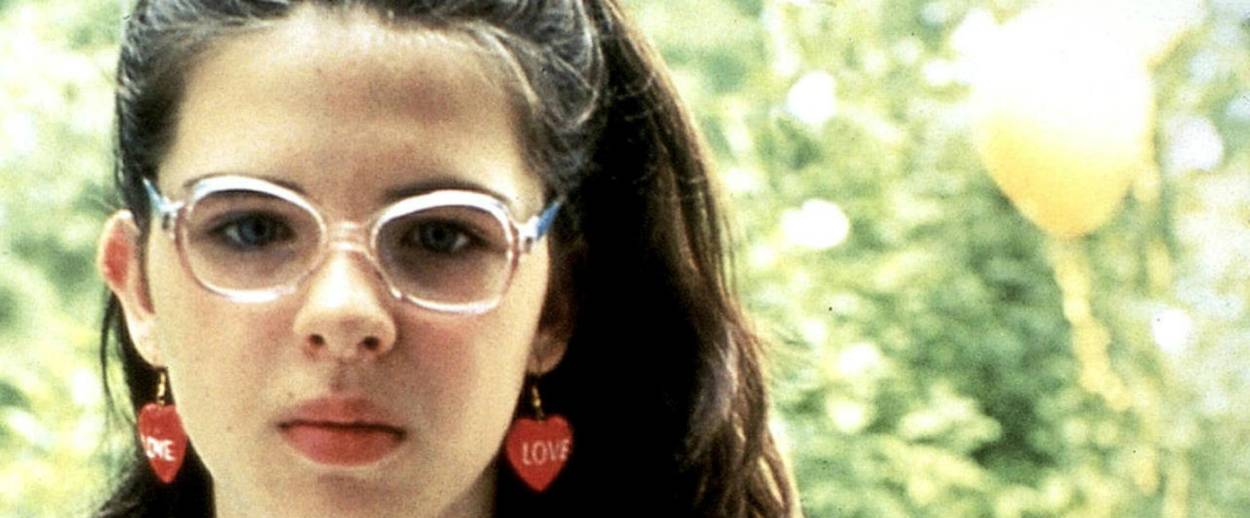20 Years Later, a Follow-Up to ‘Welcome to the Dollhouse’
Director Todd Solondz will finally introduce us to a grown-up Dawn Weiner, the nerdy, Jewish, and unredeemably pathetic star of his best film to-date




“You better get ready, because this afternoon, at 3 o’clock, I’m gonna rape you.” This is the most indelible (if often slightly misquoted) line in one of the most indelible independent films of the ’90s, a decade chock-full of them: Welcome to the Dollhouse.
The feature debut from director Todd Solondz, Welcome to the Dollhouse tells the story of Dawn Weiner, a miserable adolescent girl growing up in a miserable section of suburban New Jersey.
Homely, bespectacled, and socially awkward, Dawn is, at best, a figure of fun, and at worst, a receptacle of abuse for everyone who knows her. In the dark days before anti-bullying foundations and sensitivity guidelines in the public schools, there are no wise adults for Dawn to talk to, no compassionate fellow outcasts to whom she can pour her heart out to over Skype. The popular girls snicker behind her back, the unpopular ones are physically violent towards her. Her nerdy Jewish parents, having against all genetic odds produced one tiny, blonde, ballerina-princess of a daughter (Dawn’s little sister, Missy, forever pirouettes through the split-level ranch house in a miniature tutu), seem to view Dawn as an embarrassment they would prefer to ignore. It’s like the seventh grade version of an elderly Yiddish-speaking relative dementedly reliving her European trauma in a semi-deserted nursing home.
Brendan McCarthy, the speaker of the aforementioned and indelible line, is a merciless bully at school who is nonetheless the only person who shows any particular notice of Dawn beyond the disinterestedly hostile. (The great joke of the movie is that Dawn eagerly shows up for her own “rape.”) Welcome to the Dollhouse is the bleakest, most unrelenting portrait of how horrible the world can be for a girl who doesn’t succeed at our culture’s narrow definition of femininity, and as such, is probably the most important film about American adolescence ever made.
And now, twenty years later, Solondz is finally at work on his long-awaited follow-up to Dollhouse, still his greatest film. His new production, Wiener Dog, will star Greta Gerwig as the adult Dawn Weiner (a change in the Solondz universe; Solondz’s 2004 film Palindromes, whose main character was Dawn’s cousin, Aviva, claimed that Dawn had committed suicide). And while there’s not much in the way of concrete description—the film’s IMDB page claims it’s the story of a happy dachshund who spreads joy and love wherever it goes—but Solondz is too smart and dyspeptic a filmmaker to give Dawn the conventional happy ending that normally awaits the adolescent nerd in American cinema. Those nerds—the ones who start software companies, get beautiful partners, come back to wreak smug revenge on their teenage tormentors—are the exceptions that prove the world.
If Facebook is any indication, popular kids generally stay popular; unlikeable outcasts might come to a kind of inner peace over time, but they usually remain on the outside looking in. The brilliance of Welcome to the Dollhouse is, how Solondz manages to make the audience take the side of the bullies. Dawn is human, but she’s also so unredeemably pathetic, so unable to read simple social cues, and so unlikely ever to have the life she so desperately craves, that you end up sort of disliking her in spite of yourself. You can’t comfort yourself by thinking that you would have been Dawn’s friend. You wouldn’t have. At best, you would have ignored her, turning your head to what you didn’t want to see.
In Welcome to the Dollhouse, Todd Solondz created a masterpiece of toxic complicity that goes a long way towards explaining the central mystery of the 20th century: how regular people are capable of terrible things, without ever questioning their essential goodness. I don’t know about you, but I can’t wait to see what further horrors we all have in store for the grown-up Dawn Weiner. After all, kids can be cruel, but adults have power.
Previous: Television’s Most Alluring Antihero is a Fictional Jewish Woman
Amy Schumer Satirized the Rite of Visiting Holocaust Memorials—and Nailed It
The Madoff Miniseries Stars Lots of Jews Playing Jews—And That’s Exciting
Rachel Shukert is the author of the memoirs Have You No Shame? and Everything Is Going To Be Great,and the novel Starstruck. She is the creator of the Netflix show The Baby-Sitters Club, and a writer on such series as GLOW and Supergirl. Her Twitter feed is @rachelshukert.